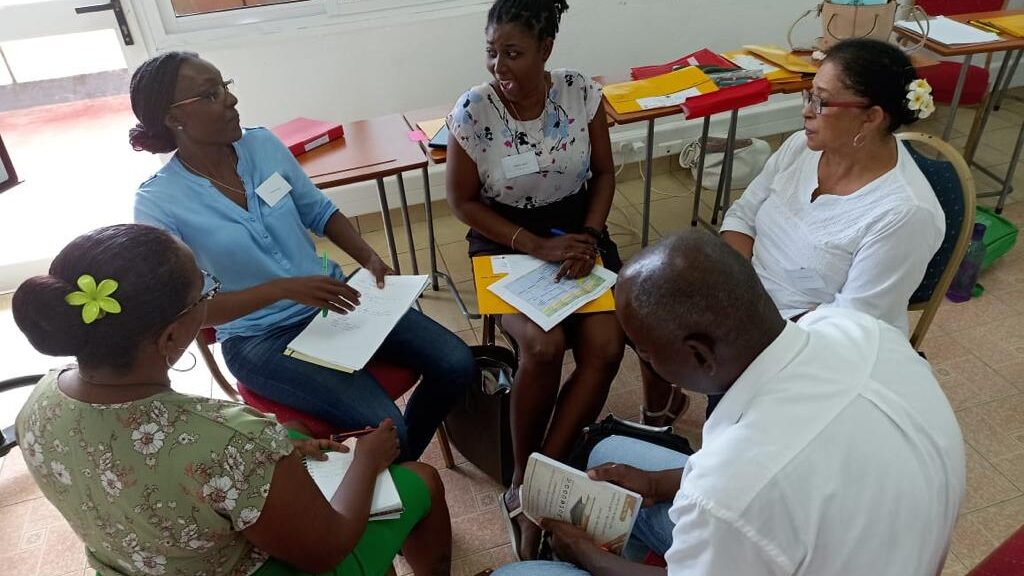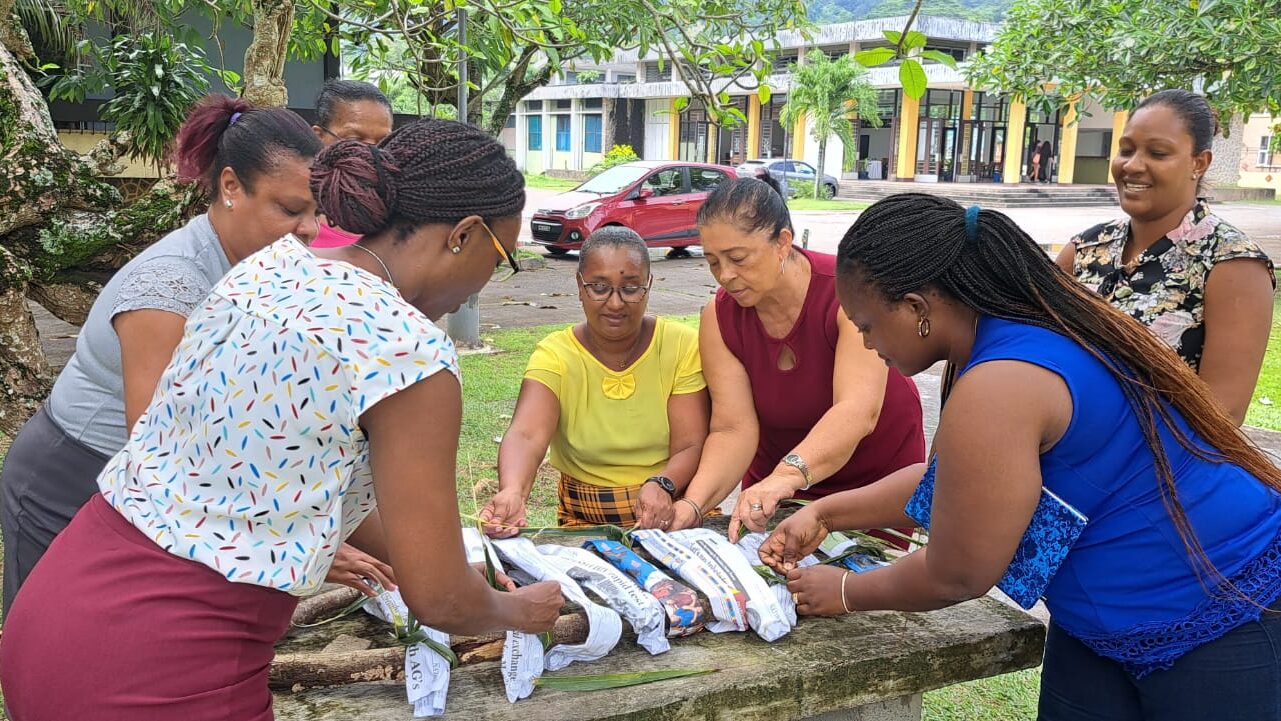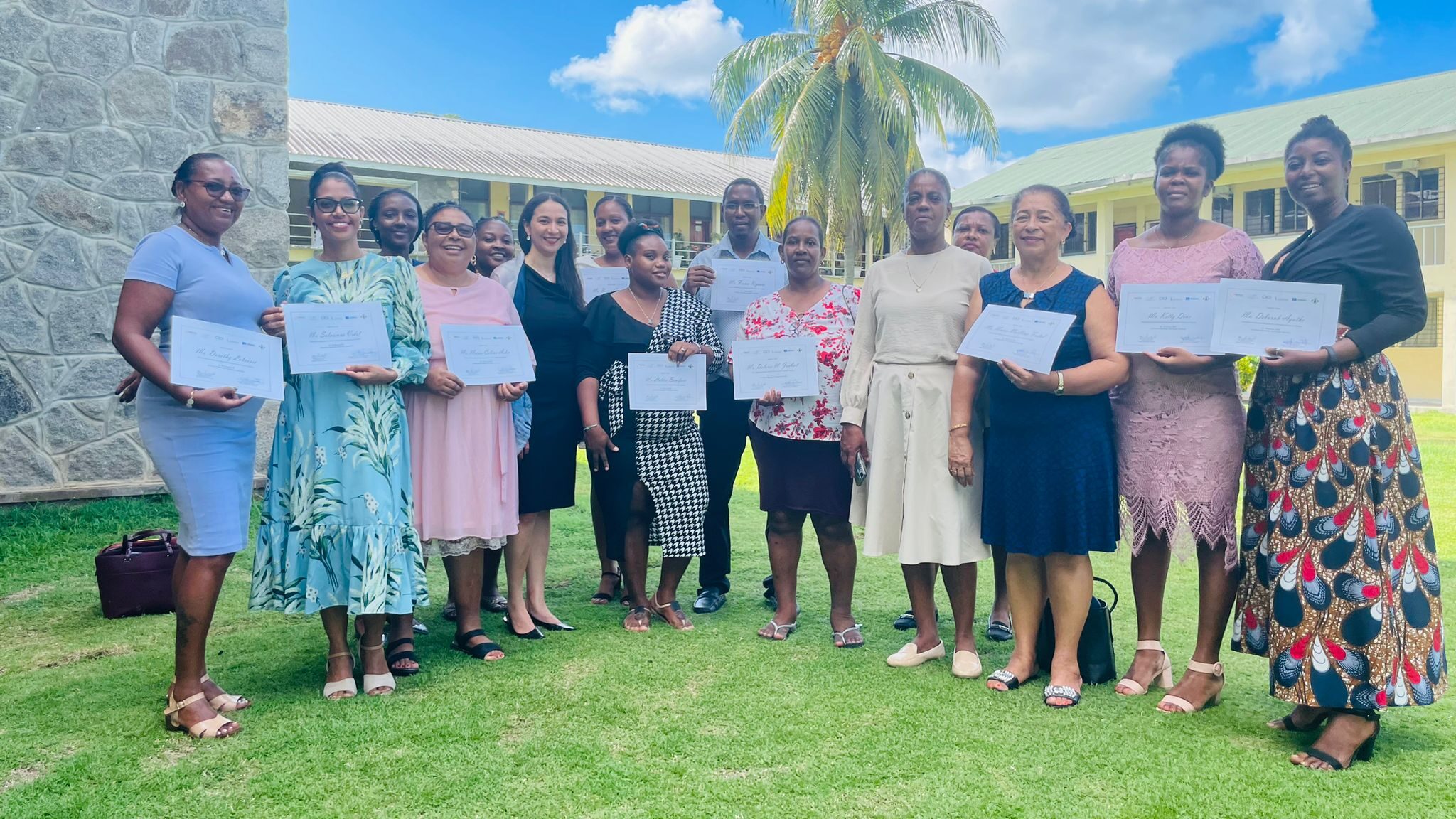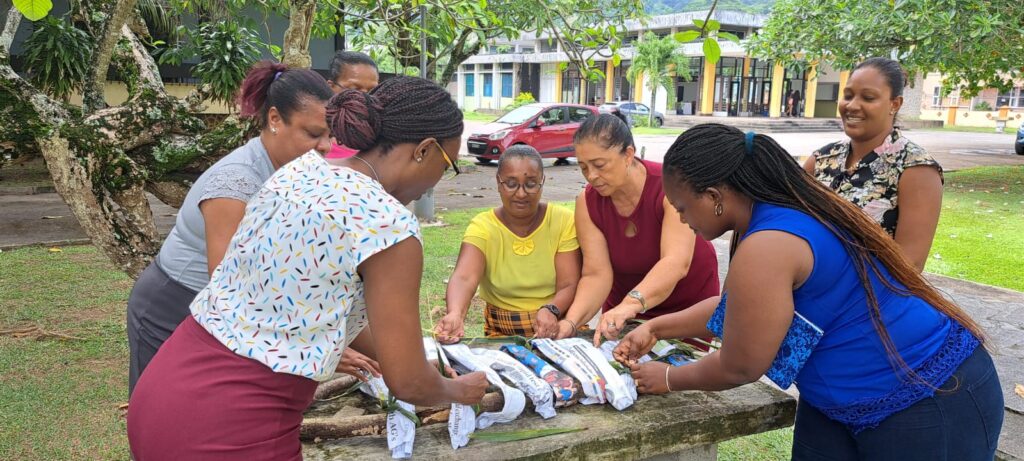The Ethics Education Fellowship made its debut in Seychelles with a national Teacher Training Workshop, held from 20 to 24 February 2023, which brought together 20 primary and secondary school teachers. The program, endorsed by the President of Seychelles and approved by the Cabinet of Ministers, aims to extend its reach to over 450 children across 15 schools.

The Ethics Education Fellowship Program
The Fellowship Program is a collaborative initiative involving the ministries of education from Bangladesh, Indonesia, Kenya, Mauritius, Nepal, and Seychelles. The program seeks to enhance the sustainable implementation of ethics education programs in formal education settings, promoting intercultural and interreligious learning and dialogue, as a contribution to global citizenship, and building more inclusive and peaceful societies.
By building the capacities of educators in each participating country, the program equips them with the skills to design and facilitate transformative learning journeys for children. This approach places learners at the center of the educational experience, fostering critical thinking, ethical decision-making, and collaborative problem-solving to empower them to make positive contributions to their communities.
Ms. Diana Monthy, a Lecturer at the Seychelles Institute of Teacher Education and a Fellow of the program, highlighted the importance of ethics education for the country. Referring to the national Constitution’s preamble, she emphasized that the program presents a timely opportunity to assess the national commitment and progress in creating “a just, fraternal and humane society in a spirit of friendship and co-operation with all peoples of the world… and where Seychelles serve as an example of a harmonious multi-racial society.”

The Training Workshop for Teachers
Ms. Merna Eulentin, the Principal Secretary for Education of Seychelles, took the stage at the opening ceremony of the training workshop for teachers, setting the tone for the upcoming days. In her opening remarks, Ms. Eulentin emphasized the Government of Seychelles’ commitment to ethics education and its importance as a means to strengthen educational programs: “Ethics education is the focal point at this critical untimely topic, it is a means to strengthen education programs that foster ethical values in an inter-cultural learning context,” she said. She also highlighted how this initiative aligns with Sustainable Development Goal 4.7, promoting a culture of peace, global citizenship, non-violence, and appreciation of cultural diversity.
The event was attended by the Executive Director of the Office of the Minister of Education, members of the National Assembly, the Dean of the University of Seychelles, as well as students and teachers.
Facilitator Mr. Suchith Abeyewickreme from Arigatou International delivered a keynote address, emphasizing the necessity of ethics education in a world that is increasingly diverse and interconnected. Mr. Abeyewickreme highlighted the need to acknowledge and engage with the diversity within classrooms and among teachers, making it an essential aspect of education.

Hosted at the University of Seychelles, the workshop was led by the national team of fellows with support from Mr. Abeyewickreme. The participants consisted of school teachers specializing in Personal Social Education and Catholic Religious Education.
Throughout the five-day workshop, participants familiarized themselves with the Ethics Education framework presented in the program. The framework is centered around three pillars: relationships, ethical reflections, and collective action. This approach enables learners to develop positive relationships, engage in ethical reflection and dialogue, and enhance their ability to live together harmoniously. By cultivating these skills, the program aims to empower children to effect positive change within their communities, fostering their personal growth and contributing to their societies.
Reflecting on the workshop, one participant shared, “If I hadn’t attended this workshop on ethics education, I wouldn’t have noticed several things that I’m aware of now. This workshop has had a direct impact on me. I now find myself automatically thinking, reflecting, and seeing things differently.”

Launch of the Implementation in Schools
The Fellowship Program was officially launched in Seychelles on 31 March 2023 in a formal ceremony, marking the beginning of its implementation with children from local schools.
The ceremony started with an address from Dr. Justin Valentin, Minister of Education of Seychelles, delivered by Ms. Merna Eulentin, Principal Secretary for Educational Services, followed by Mrs. Vicky Michel, Secretary General of the Seychelles National Commission for UNESCO, and Ms. Maria Lucia Uribe, Executive Director of Arigatou International – Geneva.
During the ceremony, the team of fellows presented the Ethics Education Fellowship highlighting its pillars and transformative pedagogical approach. Subsequently, certificates were awarded to the trained teachers.
Mr. Ahmed Afif, Vice President, and Mrs. Linda Ramkalawan, First Lady of the Republic of Seychelles, also attended the event. Artistic performances, including a song and a Creole dance performed by children, added to the celebratory atmosphere of the ceremony.

A Collaborative and Multistakeholder Journey
The Ethics Education Fellowship program is built on a fellowship model, with five representatives from each country collaborating to lead the national efforts. These representatives include educators and ministry officers who organize training workshops for teachers, monitor the successful implementation of ethics education programs for children, and advocate for the crucial role of ethics education at a national level.
Furthermore, the fellows have established a Global Community of Practice to foster collaboration, share experiences and work together for the expansion of the program.
The program is a collaboration between the ministries of education, together with Arigatou International, the Guerrand-Hermès Foundation for Peace, the KAICIID International Dialogue Centre, the Muslim Council of Elders, and UNESCO, represented by the UNESCO Regional Office for Eastern Africa and the UNESCO New Delhi Cluster Office. The process is supported by the National Commissions for UNESCO of Indonesia and Kenya.

We extend our heartfelt appreciation to the dedicated fellows: Ms. Betty-Mai Sofa, Ms. Sharon Frederic, Ms. Diana Monthy, Ms. Sandra Jeanne and Ms. Erica Derjacques-Inacio. We thank them for their invaluable contribution in conducting this teacher training workshop. We would also like to express our sincere gratitude to the partners and organizations involved, whose collaboration and support have played a pivotal role in ensuring the sustainability of this program.
